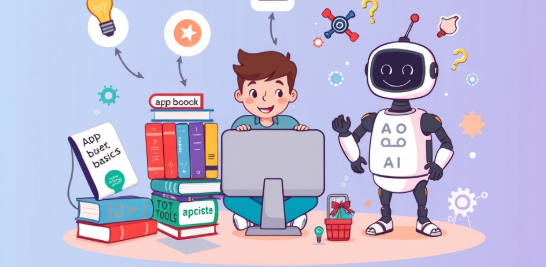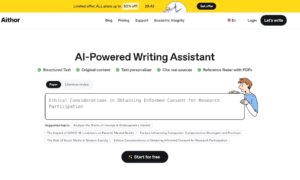Have you ever paused to consider how long you’ve been wrestling with app development? Weeks, months, or even years? Many have turned to online tutorials, coding bootcamps, and community forums in search of solutions. But did those common strategies lead to real progress or just frustration? It’s not uncommon to feel a mix of confusion and occasional breakthroughs along the way. As time passes, your approach and mindset may shift—so why do so many still overlook this crucial aspect? The answer might surprise you…
Mark, a freelance developer, was determined to build his first mobile app. He followed the “traditional path”: bought thick programming books, enrolled in a 6-month online course, and even joined a local coding meetup. But after weeks of grinding, he hit a wall. “Why does this keep crashing?” he muttered, staring at his screen at 2 AM. The tutorials didn’t cover his specific error, and the forums offered conflicting advice. His progress stalled—debugging ate up hours, and the app’s core features remained half-baked. “I thought I could just power through,” he admitted to a friend over coffee, “but this isn’t working.” Frustration mounted as deadlines slipped. Then, one sleepless night, he stumbled on an AI coding assistant—and hesitated. Could a tool really fix what months of grit couldn’t?
Mark’s frustration wasn’t just about his own progress—it started leaking into everything. His girlfriend noticed how he’d zone out during dinners, absently tapping debugging logic into his phone. His meetup buddies stopped asking for updates after the third time he snapped, “It’s not working, okay?” Even his coffee shop barista raised an eyebrow when he muttered curses at his laptop screen. The breaking point came when his client’s deadline loomed, and his half-built app kept freezing during demos. “We might need to reconsider this partnership,” the client’s email read, and that’s when Mark’s hands went cold. He’d burned months on courses and forums, but the harder he pushed, the worse it got. Then he remembered that AI tool—the one he’d dismissed as a “cheat.” With nothing left to lose, he hovered over the download button. Could this really be the lifeline he needed?
Have you ever wondered if self-taught app development really works for everyone? 🤔 It’s a common question that pops up among aspiring developers. The truth is, it can be a bit tricky, but with the right approach, many people find success.
One of the biggest concerns new learners face is where to find the best learning resources. 💻 Platforms like Codecademy, Udacity, and Coursera are fantastic starting points! They offer structured courses that guide you through essential skills step by step.
Time commitment also tends to weigh heavily on minds. How long does it really take to master these skills? ⏳ Well, it varies! On average, you might spend anywhere from a few months to over a year honing your craft, depending on your prior knowledge and how dedicated you are.
Now let’s talk about community support—this is something that often gets overlooked. Many newbies don’t realize just how valuable forums like Stack Overflow and Reddit can be for troubleshooting problems or finding encouragement when things get tough. 🌟 Connecting with others who share your journey can make all the difference!
And speaking of making things easier: did you know there are AI tools out there designed specifically for developers? Tools like GitHub Copilot can help streamline coding and debugging processes, acting as an additional layer of support in your learning journey.
Lastly, building a portfolio is crucial! 🛠️ You might ask yourself what type of projects should I showcase? Focus on creating apps that highlight your skills—think simple utilities or fun games—to demonstrate what you’ve learned effectively.
So here’s a thought: while diving into self-taught app development may seem daunting at first glance, understanding these aspects could change your perspective entirely. What do you think—are these steps enough to ease those initial doubts? Let’s keep exploring…
When it comes to self-taught app developers, several key factors can hold them back. Many of these individuals lack structured learning paths, which can create significant gaps in their knowledge. Some argue that without a clear curriculum, it’s easy to feel lost and overwhelmed. Moreover, limited access to quality resources and mentorship might leave them feeling isolated in their journey.
Imposter syndrome is another hurdle; feelings of inadequacy often prevent them from seizing opportunities or seeking help. Networking is crucial in tech, yet many overlook its importance—a missed chance for collaboration and growth. Balancing learning with other responsibilities can lead to burnout too, affecting consistency.
And then there’sproblem-solving: without foundational knowledge, troubleshooting becomes daunting. This raises the question—are these obstacles merely part of the journey or indicative of deeper systemic issues? If these challenges persist, how should aspiring developers adapt?
Embarking on your self-taught app development journey? Here’s a practical action plan to get you started!
First off, let’s break down your milestones. Aim to master UI basics with SwiftUI or Flutter in the first week. It’s essential for building that app interface you envision! For tools, familiarize yourself with Git for version control and Firebase for backend services. And don’t forget Figma; it’s a game-changer for designing your app layout.
Now, allocate time wisely—set aside about two hours daily to code and an additional 30 minutes for AI-assisted code reviews using tools like GitHub Copilot or ChatGPT. These can help you troubleshoot effectively. But here’s a little warning: while these AI tools are fantastic, avoid relying solely on them without understanding the underlying syntax.
Reference Web: https://www.pineymountain.com/
To validate your progress, consider conducting code reviews on platforms like CodePen and testing your MVPs via TestFlight if you’re working on iOS apps. Reflecting on my own experience, I remember how leveraging resources like Stack Overflow alongside AI insights truly enhanced my learning curve.
Remember, challenges will arise—if these steps don’t solve everything, there might be deeper hurdles waiting to be tackled!



































